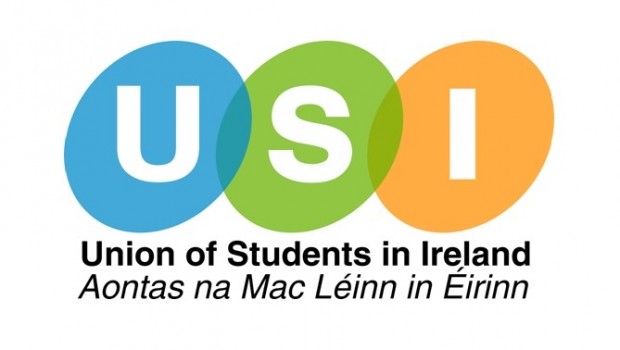Jack Leahy | Contributing Editor
The Union of Students in Ireland yesterday launched its annual pre-budget campaign, renewing its call for the protection of the maintenance grant and other student supports.
Launched at Smock Alley Theatre, the ‘Education is’ campaign is based on the organisation’s pre-budget submission, which addresses the public good, cost, and accessibility of third-level education.
The campaign will feature a national protest event on Thursday October 8th. While details of the event are yet to be announced, The University Times understands that the regionalised ‘local day of action’ template is to be scrapped in favour of a more familiar mass demonstration.
Budget Submission
Asserting that ‘in Budget 2015, the government must protect the student maintenance grant’, USI’s pre-budget submission to members of the Oireachtas cites the growing gap between the annual cost of education and the capacity of families to meet it. Representatives are asked to raise the concerns outlined in the eight-page document in Oireachtas meetings and within their political parties.
A recent Bank of Ireland survey has estimated that the annual cost of attending third-level education is as high as €13,000, while the average student grant payment is €3,025 per annum.
On the discrepancy between level of cost and availability of support, the submission states that ‘[a] combination of dramatic increases in rental accommodation, the now annual increase in the student contribution, a saturated part-time employment market and rising inflation have all combined to dramatically widen the gap between student college costs and student supports, to the extent that even maintaining the grant, is, in effect, a decrease in support.’
The submission also reiterates the organisation’s long-standing opposition to third-level fees in the form of deferred payment schemes. Referring to student loan and graduate tax schemes in place in the United Kingdom, United States of America and New Zealand, USI comments that ‘students elsewhere have seen the consequences of crippling student debt’ and insists that ‘student loans…are not the answer.’
Calling for the return of €25 million to the education budget – as a redress to an unfulfilled promise that a 2013 reduction of that amount was a once-off – representatives are told that ‘public funding of Higher Education provides long term benefits economically, socially and culturally.’
New campaign focus
As part of the campaign, students and other societal stakeholders are asked to share on social media their take on the importance of education using ‘#EducationIs’.
The move to engage wider society in the debate on education is the latest in a number of moves by the organisation to create links with civil society organisations. In 2014 USI’s national council approved an extensive partnership with the Services, Industrial, Professionals and Technical Union (SIPTU). This followed the earlier approval of cooperation between USI and We’re Not Leaving.
Elsewhere, USI President Laura Harmon was the final speaker at the recent LGBT Noise March for Marriage, seen by many as a reflection of the importance of the youth vote to the 2015 same-sex marriage referendum.
While the specific details of the centrepiece demonstration event are yet to be announced, USI national council has mandated a national day of protest closer in make-up to a traditional protest march of demonstration than to coordinated regional events favoured in 2012 and 2013.
The 2013 regional protests saw great variety in attendance, with thousands demonstrating in Cork and Galway but fewer than 100 taking to the streets in an underwhelming Dublin event.
‘Pricing students out of a future’
Speaking ahead of the launch event, USI President Harmon said:
‘Education is too expensive. Too many students and prospective students are worrying about whether they can afford to go to college. The level of the grant as it stands today gives opportunity to the least well-off candidates in the country to attend third level education and develop skills for life. Cutting the grant or shifting the thresholds downwards would certainly price even more students out of education – and that means pricing students out of a future.’
On current student hardship, Harmon continued:
‘Education is the key to skilling people and unlocking the potential of the whole country – but right now too many people are locked out of education. The cost of sending a student to college tops €13,000 according to a study by the Bank of Ireland, whilst the average grant comes to €3,025. That’s despite rent increases of 17.2% in Dublin and 10% across the country. More than 64% of families say they’re finding it harder to cope. We need to resource students – because education is the key to the future.’







